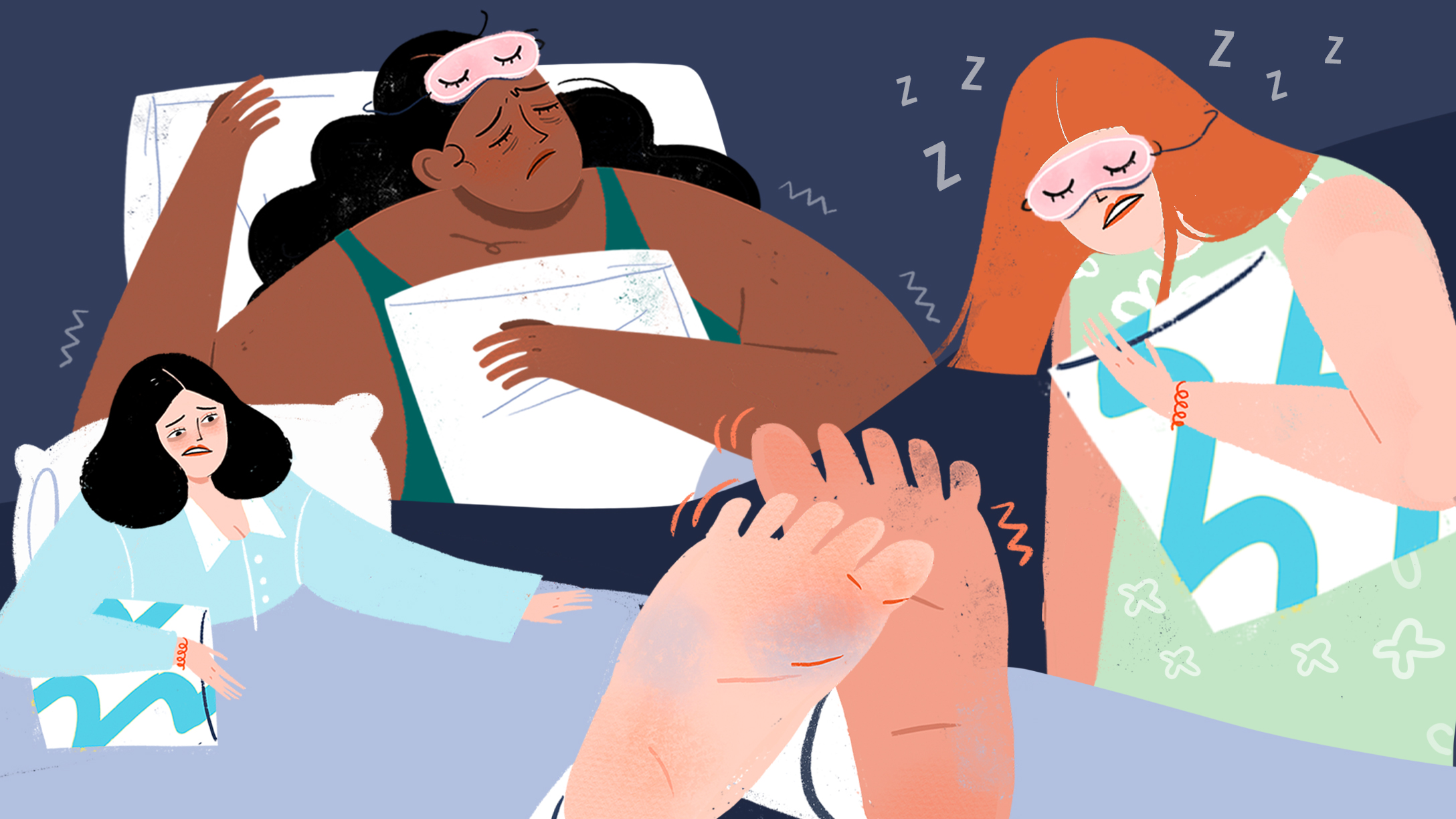
When it comes to sleep, it seems like almost everyone falls into one of two camps. In one camp are the people who fall asleep before their heads hit the pillow, sleep easily all night, and wake up feeling refreshed. In the other are the people who suffer from a wide variety of sleep issues, ranging from mildly annoying to life-altering.
From night terrors to the super-scary sleep paralysis, sleep disorders are quite common. According to the National Institute of Neurological Disorders and Stroke (NINDS) as reported by HealthCommunities.com, “About 40 million people in the United States suffer from chronic, long-term sleep disorders each year.”
More from LittleThings: PCOS: Everything Important You Need To Know About This Hormone Disorder
Here, we’ll discuss night tremors, a sleep issue characterized by twitching, shaking, or jerking motions. Although these body tremors can be annoying for you or your partner, they’re not necessarily harmful. In most cases, shaking while sleeping is just the result of your brain working overtime as you drift off to sleep.
Less commonly, night tremors can be a sign of a larger medical issue, so read on to learn all about the causes.
What Are Night Tremors?
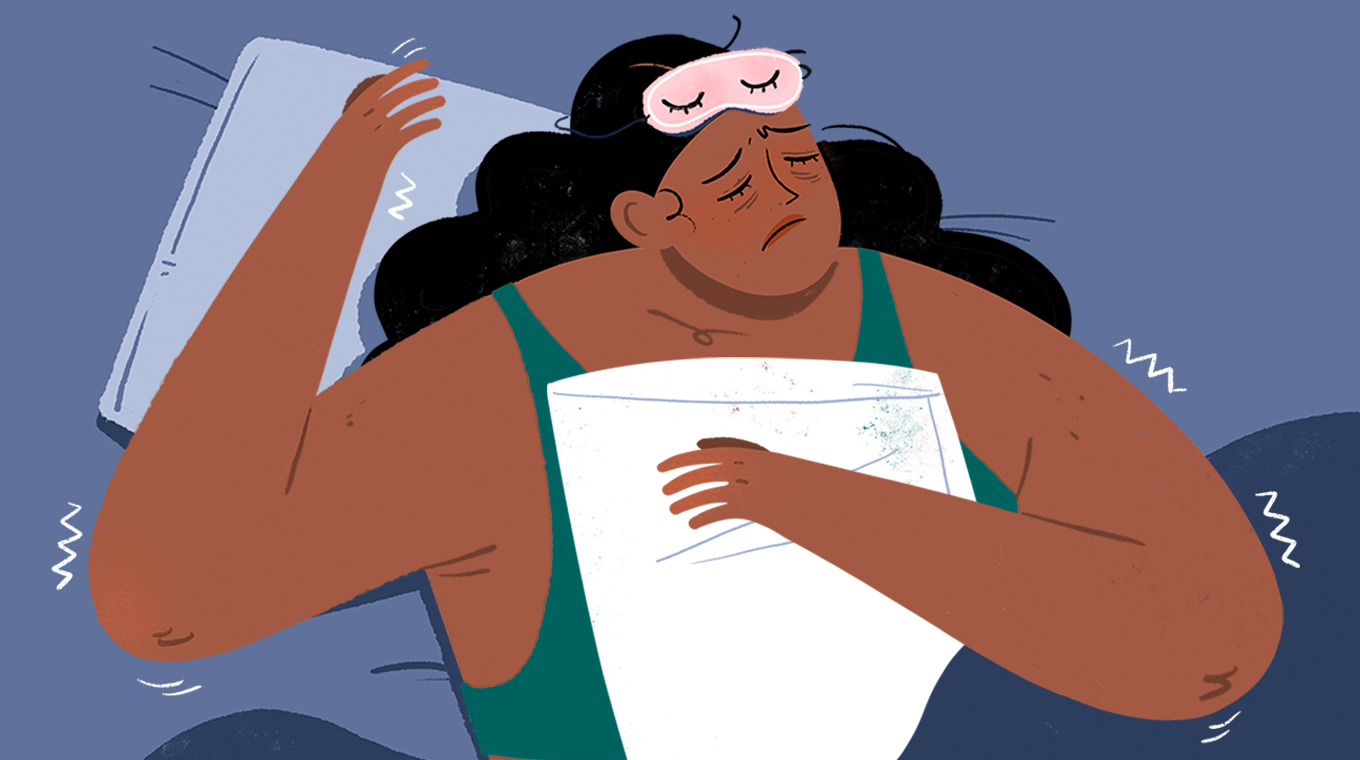
So what are night tremors? The American Sleep Association describes night tremors, scientifically known as sleep myoclonus, as a “brief twitching of the muscles that occurs when you’re asleep, and can occur separately or in groups, as well as in a sequence or at random.” These jerking or twitching motions can affect a particular part of the body, such as the lips, eyes, hands, and feet. Or the myoclonus can present as a simple jerk, or “start.”
When Do Night Tremors Occur?
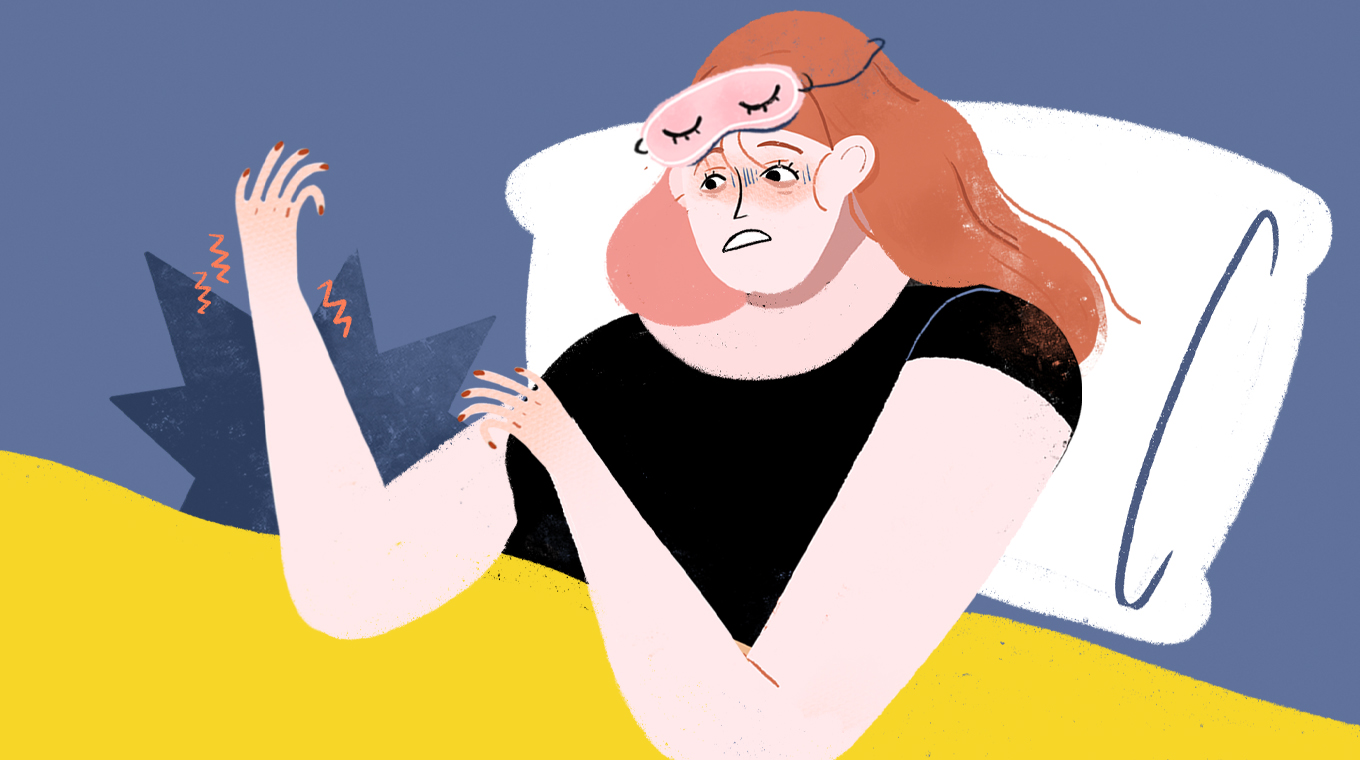
Night tremors can happen at any time during the night, but most innocuous ones (tremors that aren’t associated with deeper medical issues) seem to strike most as you are drifting off to sleep. NetWellness says, “Normal causes of shakes, jerks or tremors may include sleep starts, or sudden jerks as one is falling asleep, and periodic limb movements, most commonly seen in the first third of the night.”
However, if you’re experiencing night tremors throughout the night that seem to be worsening or spreading to other areas of your body, it might be time to contact your doctor.
What Causes Night Tremors?
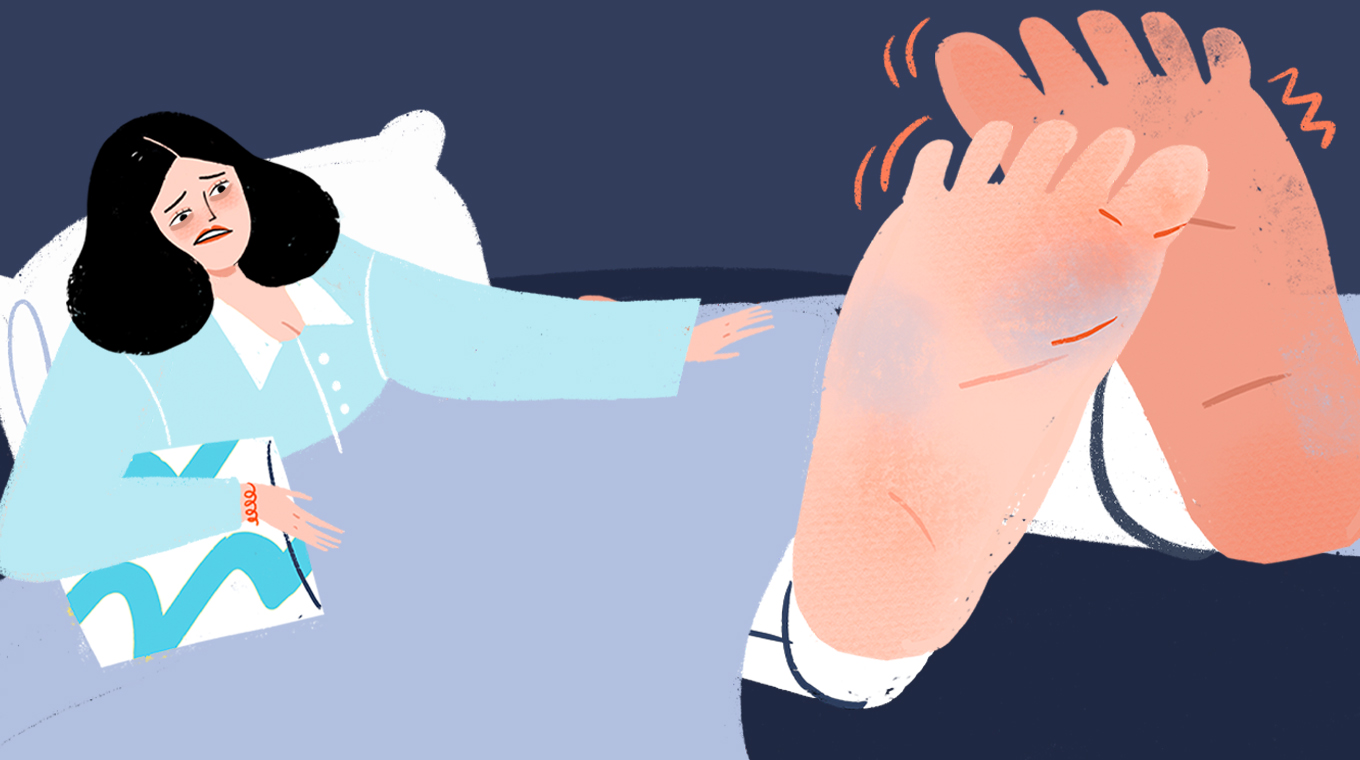
Night tremors are not a disease. Rather, they occur as a symptom of an underlying issue. There are several conditions that can lead to trembling during sleep. University Health News indicates that restless leg syndrome and a similar syndrome called periodic limb movement disorder are two of the leading causes of night tremors in adults. Read on to learn more about these two sleep related movement disorders, along with other causes of night time muscle spasms..
Cause 1: Restless Leg Syndrome
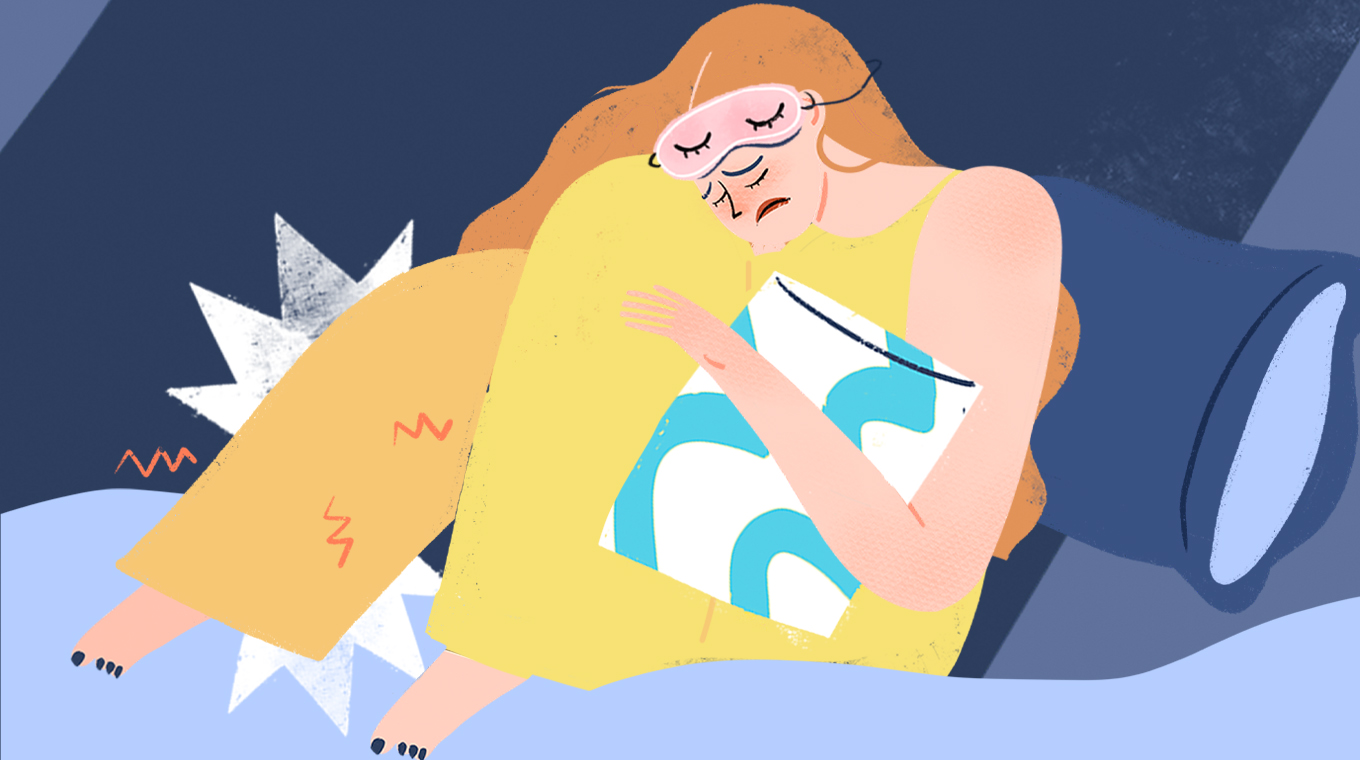
Restless leg syndrome is a disorder that causes sensations in the lower limbs that compel sufferers to move their legs continuously. According to NINDS, “People with RLS feel the irresistible urge to move, which is accompanied by uncomfortable sensations in their lower limbs that are unlike normal sensations experienced by people without the disorder.” It's not just feeling leg cramps at night, but something more intense. These leg cramps at night can lead actually to insomnia. If you have restless legs or other signs of insomnia, it's always best to reach out to a doctor.
Cause 2: Periodic Limb Movement Disorder
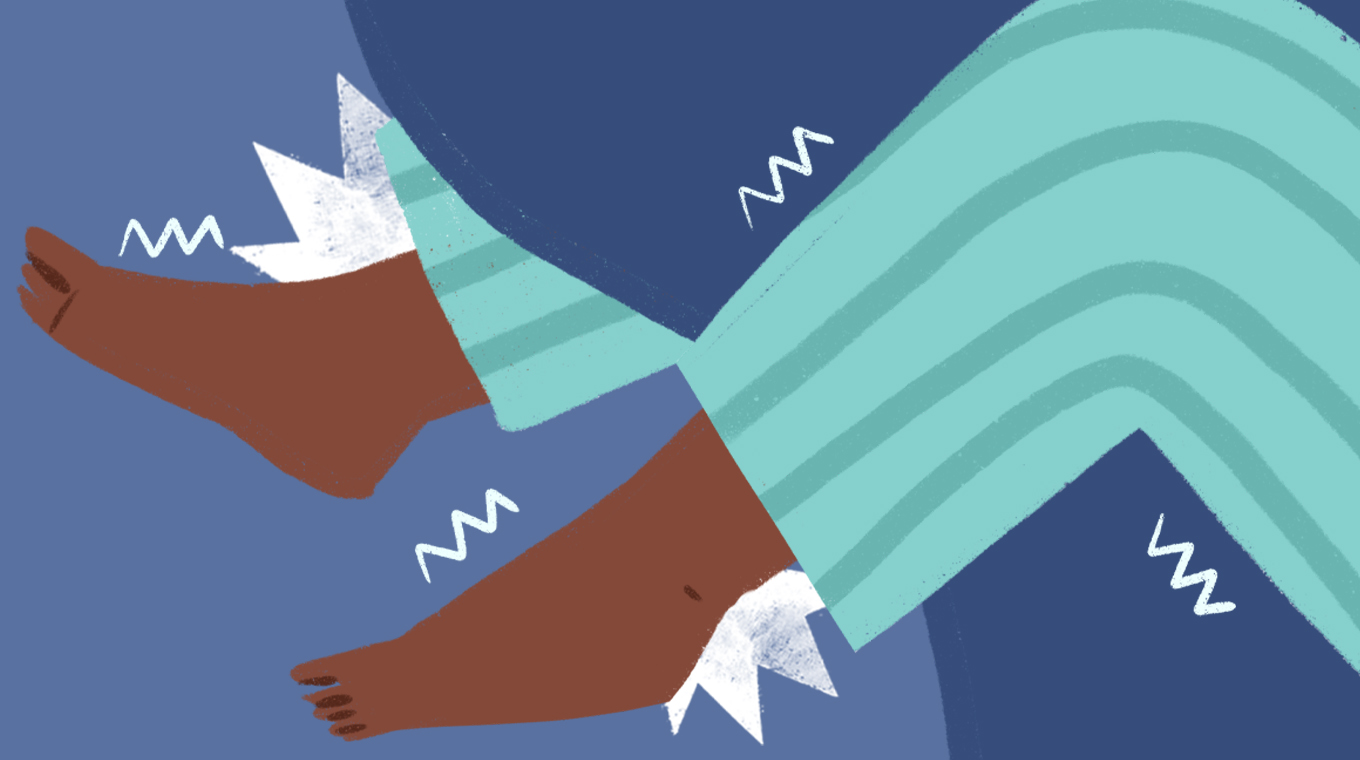
The National Sleep Foundation describes periodic limb movement disorder (PLMD) as "repetitive movements, most typically in the lower limbs, that occur about every 20-40 seconds. If you have PLMS, or sleep with someone who has shaking during sleep (also referred to as PLMD, periodic limb movement disorder), you may recognize these movements as brief muscle twitches, jerking movements or an upward flexing of the feet." These episodes can last anywhere from several minutes to a few hours. PLMS is not to be confused with nighttime seizures, which can also be serious.
Cause 3: Sleep Apnea
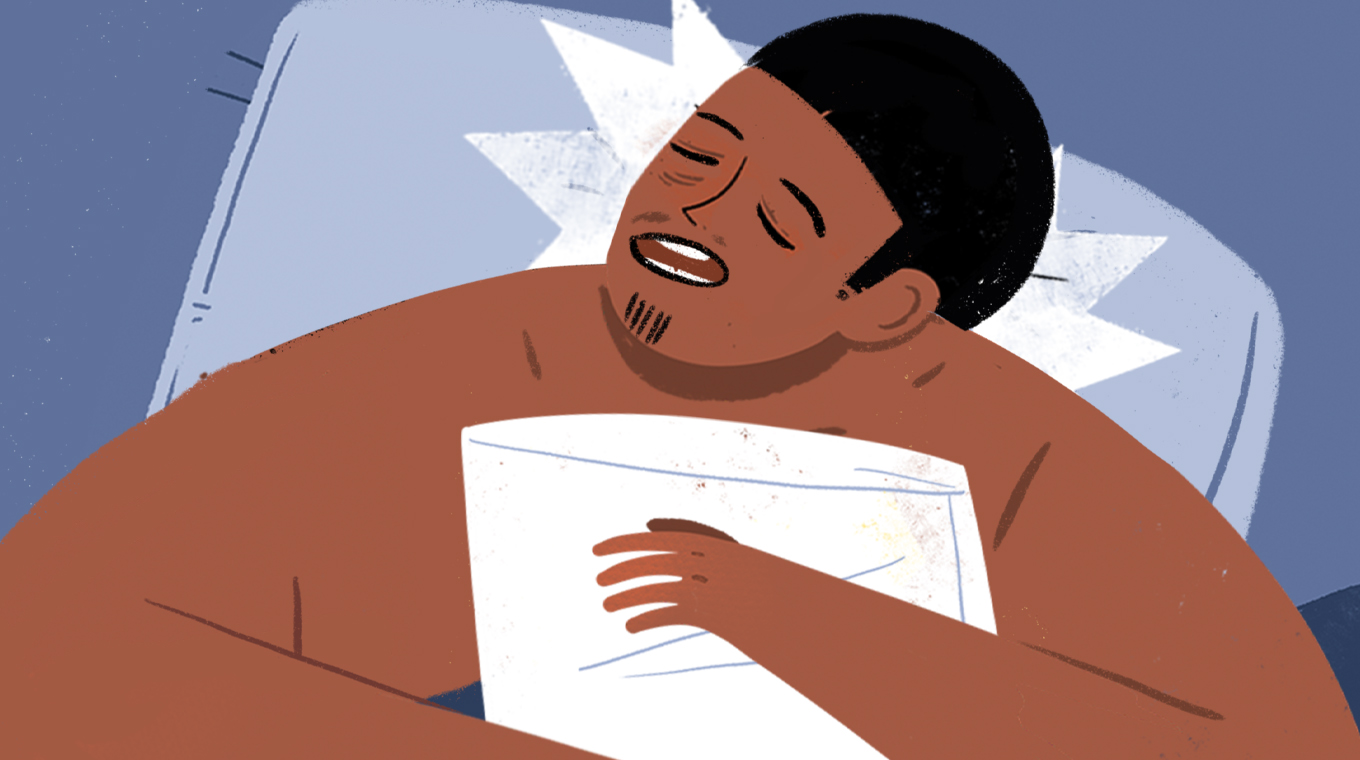
Patients with obstructive sleep apnea, a condition in which normal breathing is repeatedly interrupted for brief periods of time, often suffer from myoclonic jerks and twitches. These movements are often directly associated with the apnea episodes.
Cause 4: Peripheral Artery Disease (PAD)
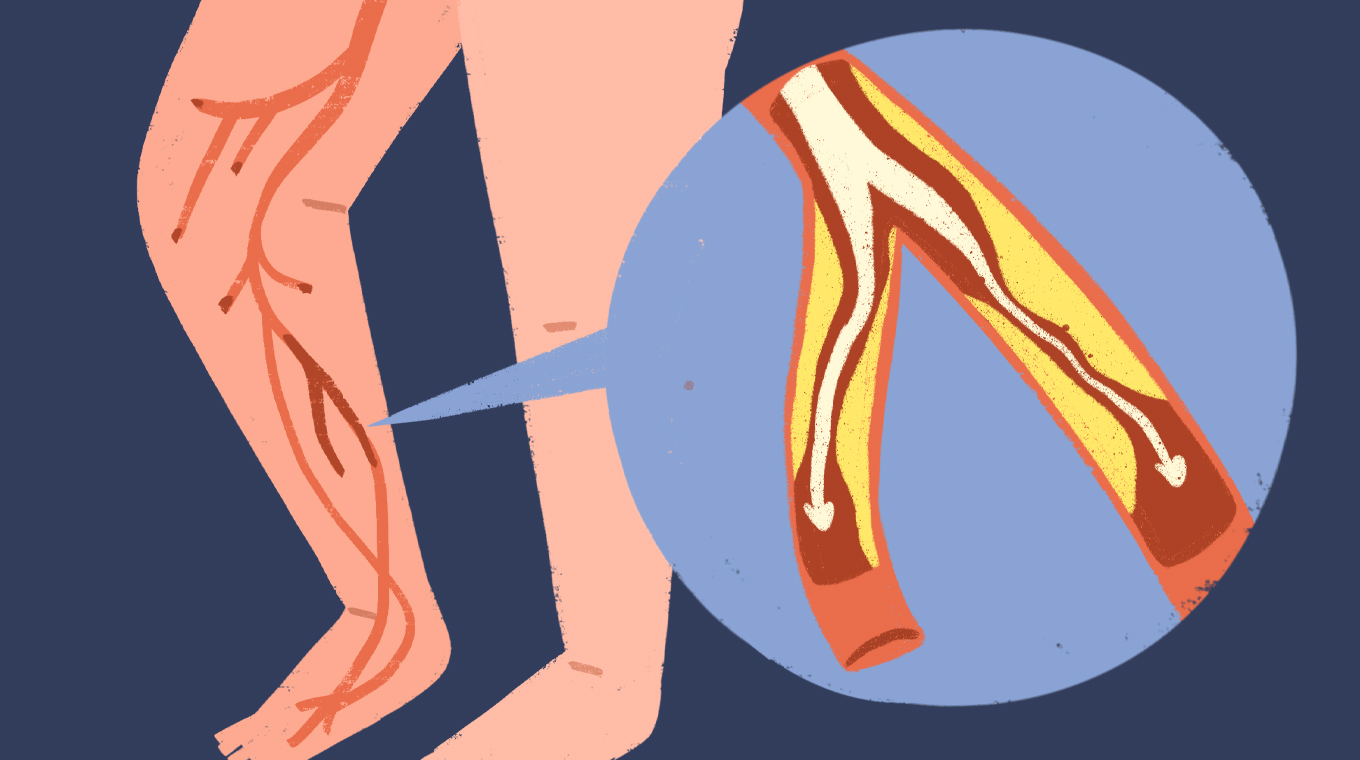
According to the American Heart Association, peripheral artery disease (PAD) is a narrowing of the peripheral arteries in the legs, stomach, arms, and head — most commonly in the arteries of the legs. When your extremities don't receive enough blood flow, it can cause numbness, weakness, and spasms.
Cause 5: REM Behavior Disorder (RBD)
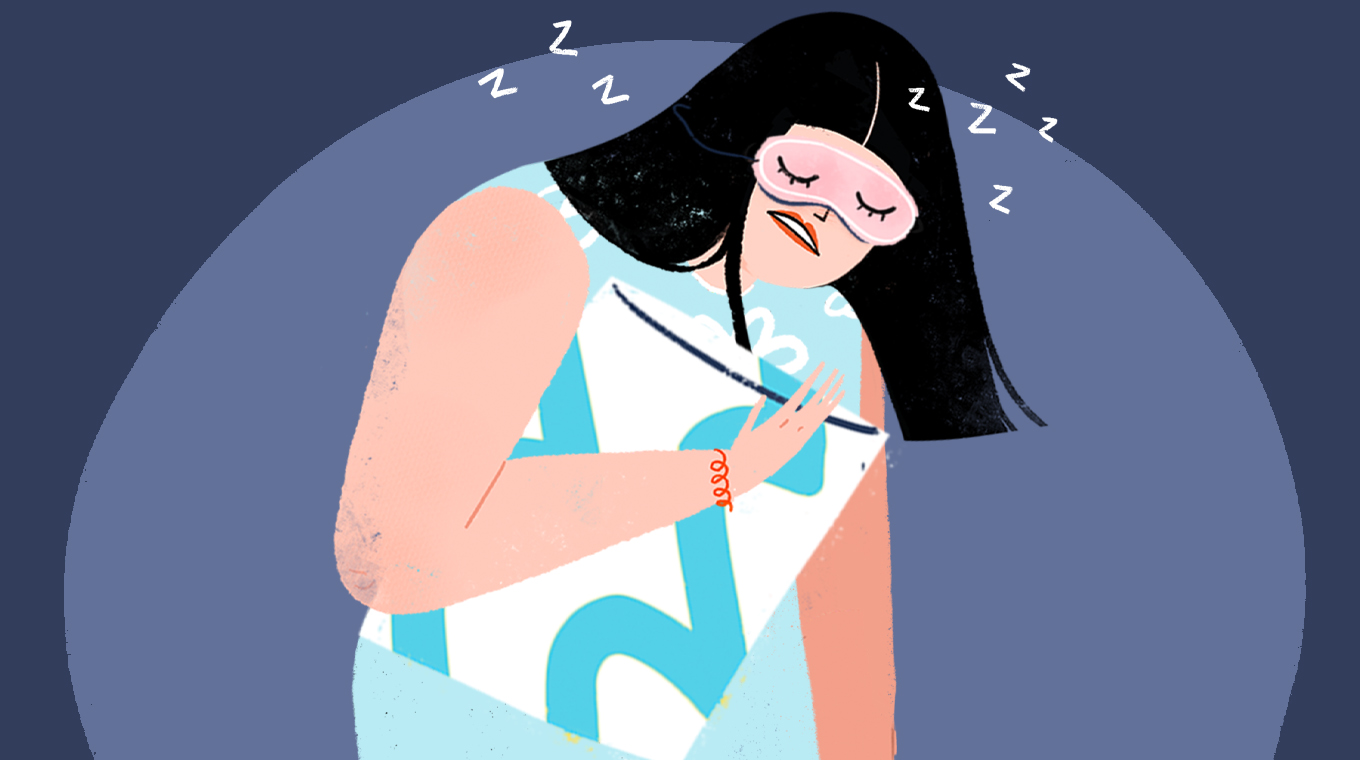
Rapid eye movement (REM) sleep behavior disorder causes you to physically act out dreams through spastic limb movements and vocals, according to the Mayo Clinic.
With this disorder, flailing, twitching, and punching can take place in response to scary, action-filled dreams — some people even get up to walk around in their sleep!
Should You Speak to a Doctor About Night Tremors?
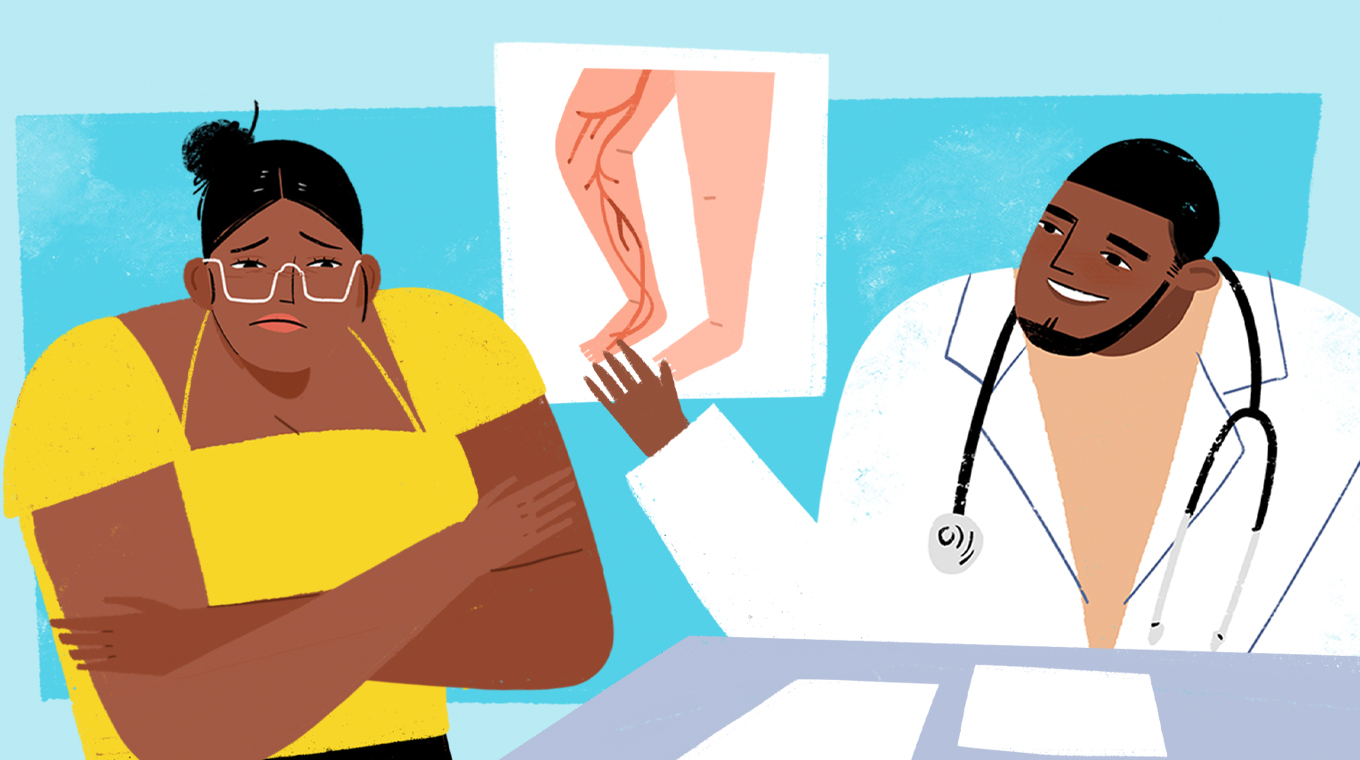
Most of the time, night tremors are more annoying than harmful. But that doesn’t mean a visit to the doctor should be out of the question. When it comes to shaking in your sleep, your doctor can help you take steps to fix the problem and get a better night's sleep.
If it’s RLS or PLMD you’re dealing with, the Sleep Management Institute explains that FDA-approved medications have recently been released on the market to ease symptoms. If sleep apnea is the culprit, a CPAP breathing device can dramatically improve your sleep. But if your sleep tremors aren’t related to any other medical issues, you might just need to take steps to improve your overall sleep hygiene to get those zzz’s.
Can You Prevent Night Tremors?
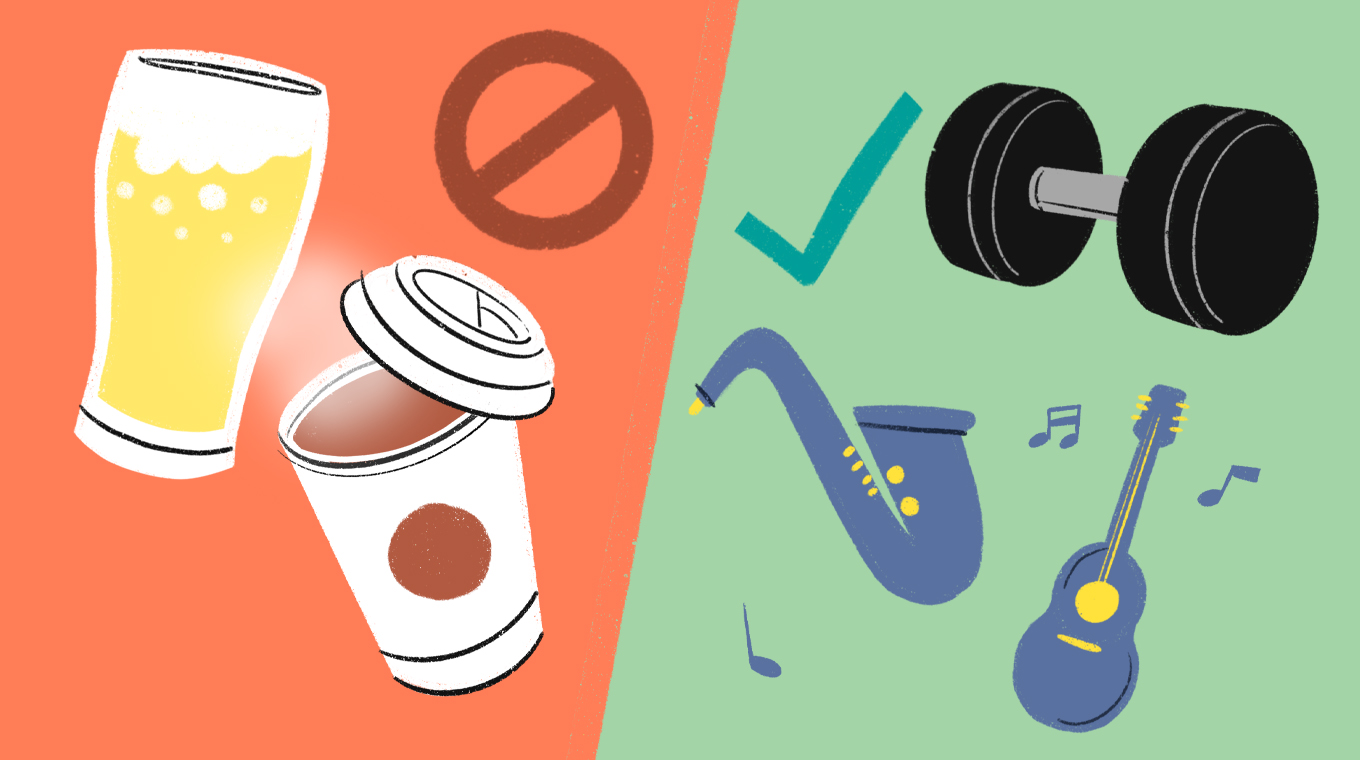
If you want to prevent night tremors, you can take some basic steps to improve your sleep. In general, follow these practices to get a better night’s sleep:
- Avoid eating and/or drinking too heavily right before bed (especially alcohol and caffeine), as these can cause harmless-yet-annoying body shakes, according to Livestrong.
- Create a clean, peaceful sleeping environment.
- Get regular exercise to burn off excess energy.
- Avoid distractions like TV or the internet right before bed.
- Listen to peaceful music or meditations as you drift off to sleep.
- Follow a regular sleep routine as often as possible.
Doing these things can help to reduce the night tremors you experience. However, to prevent them entirely, you’ll likely need to work with your doctor to determine what’s causing them.
If you found this information helpful, don't forget to SHARE it with friends and family.




